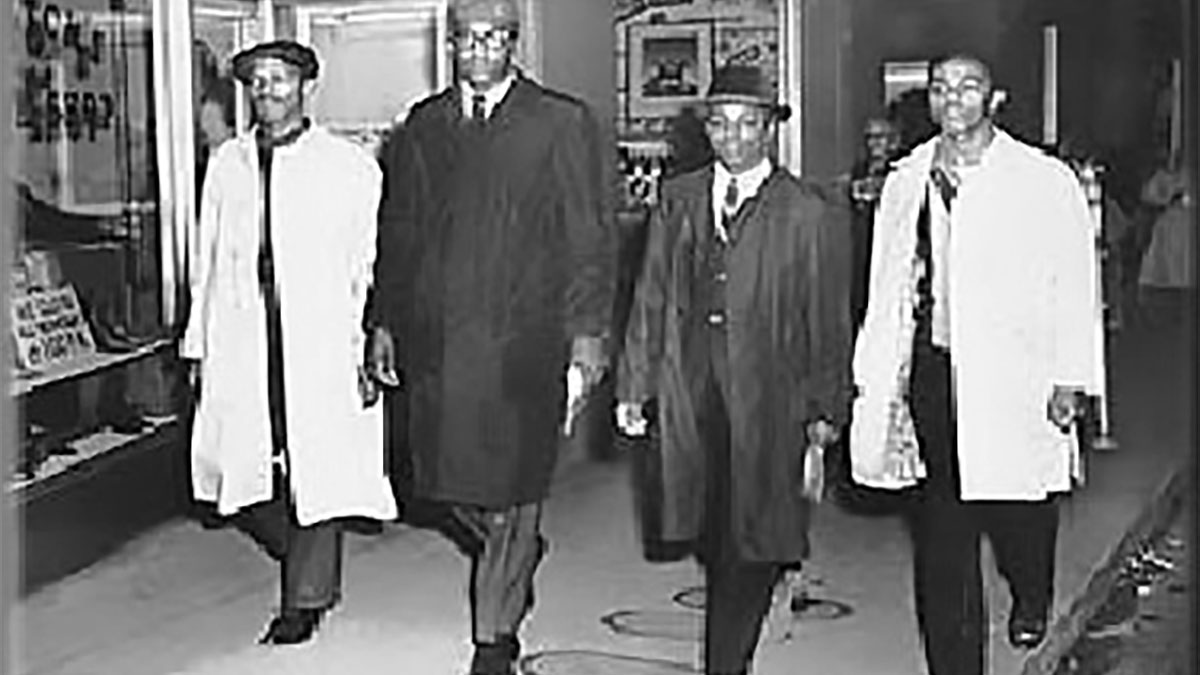
Feb. 1, 1960

Four Black freshmen students from North Carolina A&T — Franklin McCain, Joseph A. McNeil, David L. Richmond and Ezell A. Blair Jr. — began to ask themselves what they were going to do about discrimination.
“At what point does a moral man act against injustice?” McCain recalled.
McNeil spoke up. “We have a definite purpose and goal in mind,” he said, “and with God on our side, then we ask, ‘Who can be against us?’”
That afternoon, they entered Woolworth’s in downtown Greensboro. After buying toothpaste and other items inside the store, they walked to the lunch counter and sat down.
They ordered coffee, but those in charge refused to serve them. The students stood their ground by keeping their seats.
The next day, they returned with dozens of students. This time, white customers shouted racial epithets and insults at them. The students stayed put. By the next day, the number of protesting students had doubled, and by the day after, about 300 students packed not just Woolworth’s, but the S.H. Kress Store as well.
A number of the protesting students were female students from Bennett College, where students had already been gathering for NAACP Youth Council meetings and had discussed possible sit-ins.
By the end of the month, 31 sit-ins had been held in nine other Southern states, resulting in hundreds of arrests. The International Civil Rights Center & Museum has preserved this famous lunch counter and the stories of courage of those who took part in the sit-ins.

